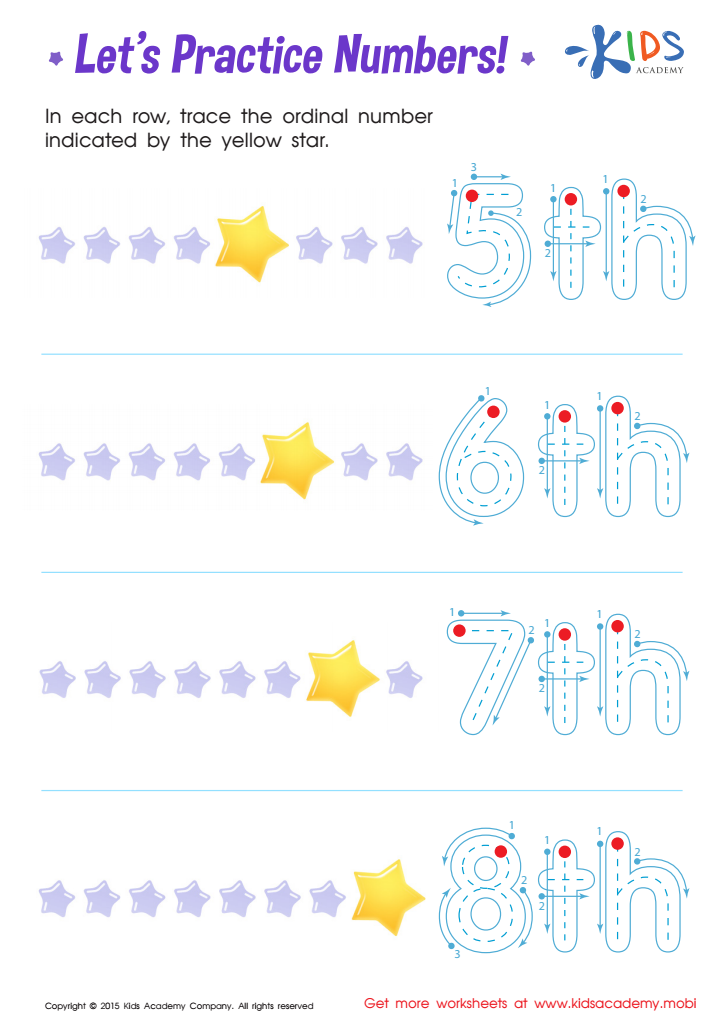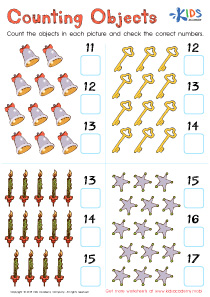Fine Motor Skills Normal Tracing Numbers Worksheets for Ages 6-9
6 filtered results
-
From - To
Our "Fine Motor Skills Normal Tracing Numbers Worksheets for Ages 6-9" are thoughtfully designed to enhance your child's pencil control and hand strength. These engaging activities encourage young learners to trace numbers while improving precision and coordination. Perfect for children aged 6-9, the worksheets support critical fine motor skills essential for writing and other academic tasks. Join in the fun of learning with these expertly crafted materials that make practicing numbers exciting and rewarding. Empower your child’s developmental journey with our tailored educational tools, making math both achievable and enjoyable. Visit our page for more details and downloads.
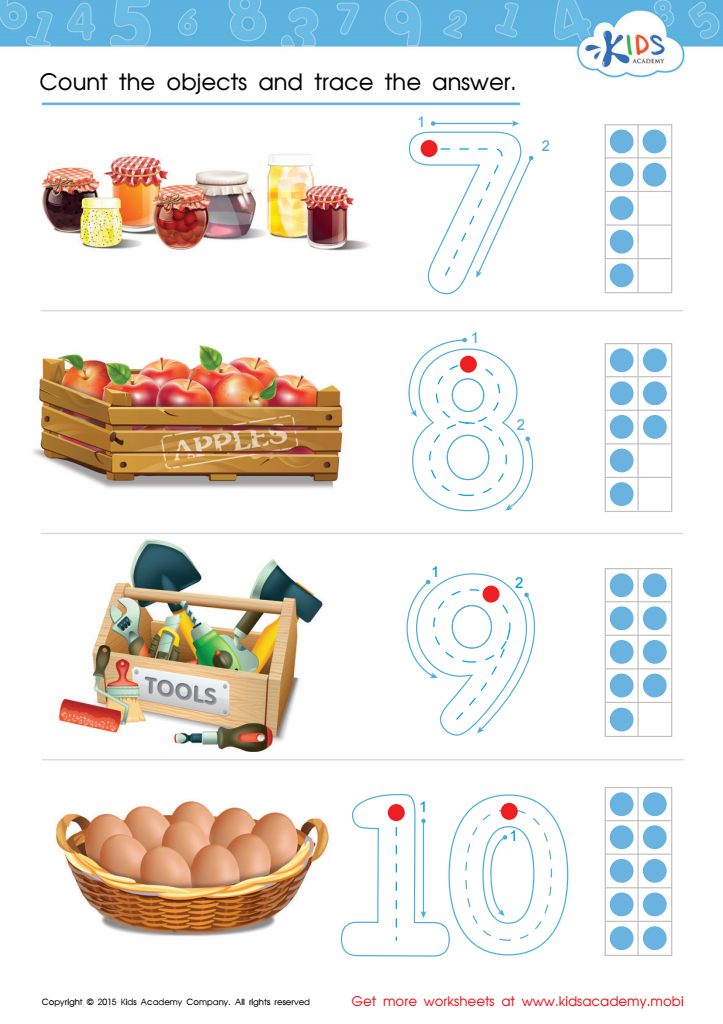

Count and Trace 7 – 10 Worksheet
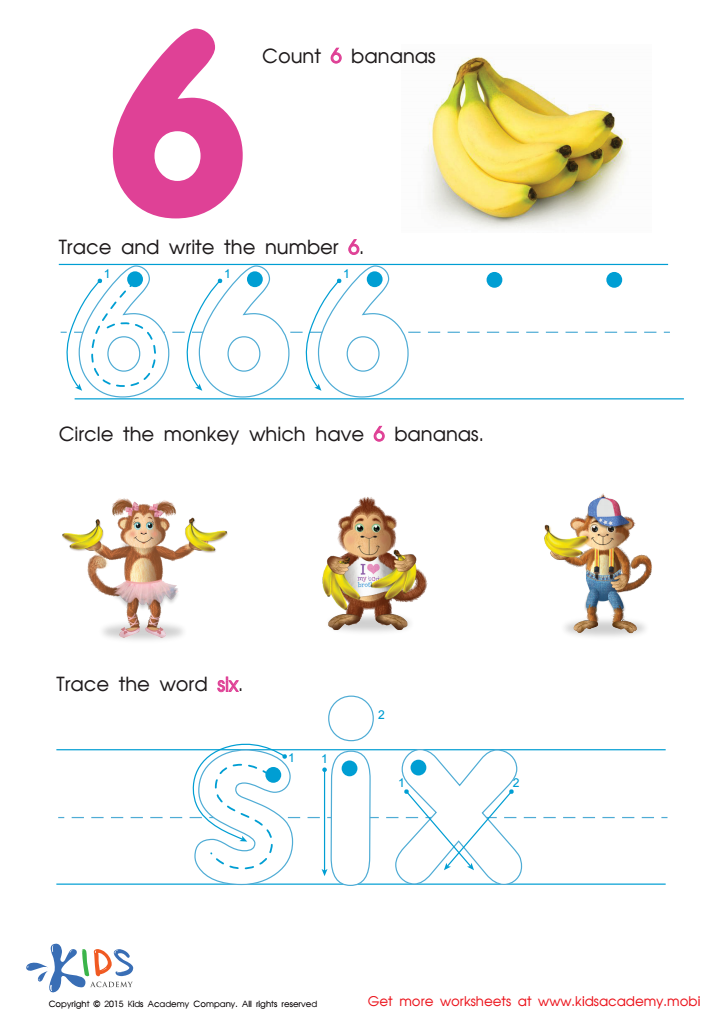

Tracing And Writing Number 6 Worksheet
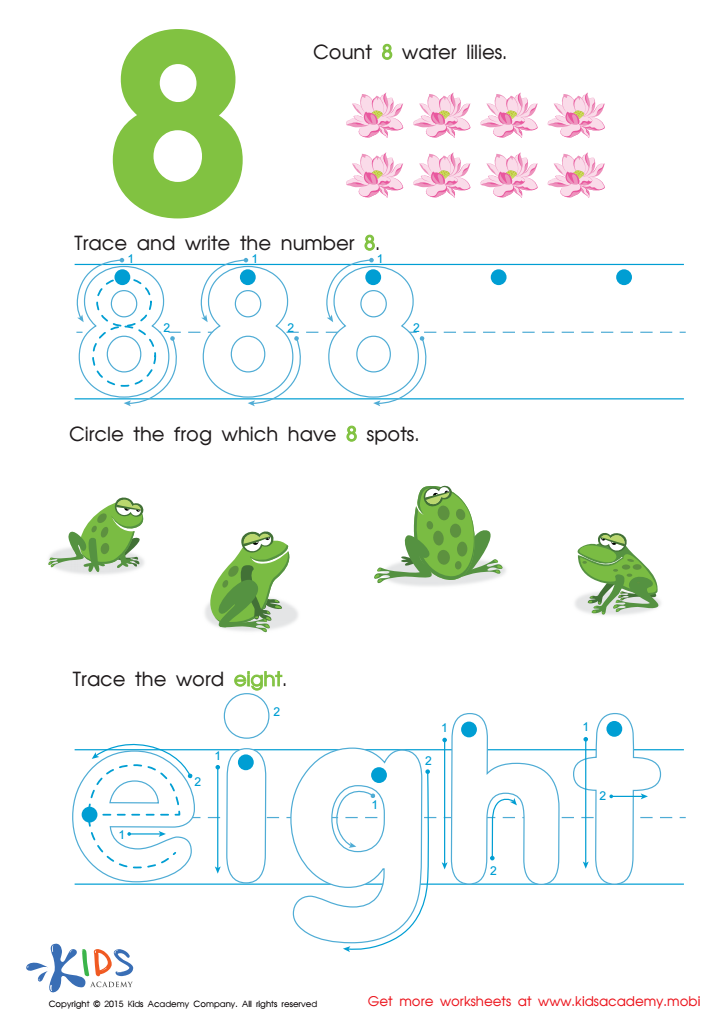

Learn Number 8 Easily Worksheet
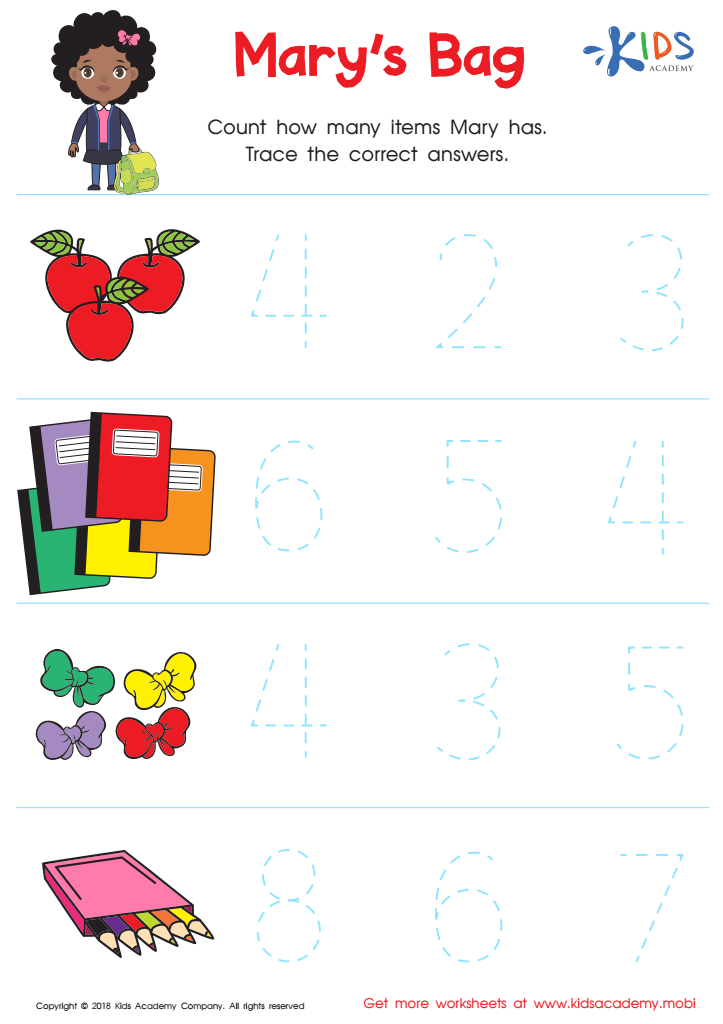

Kindergarten Number Tracing: Mary's Bag Worksheet
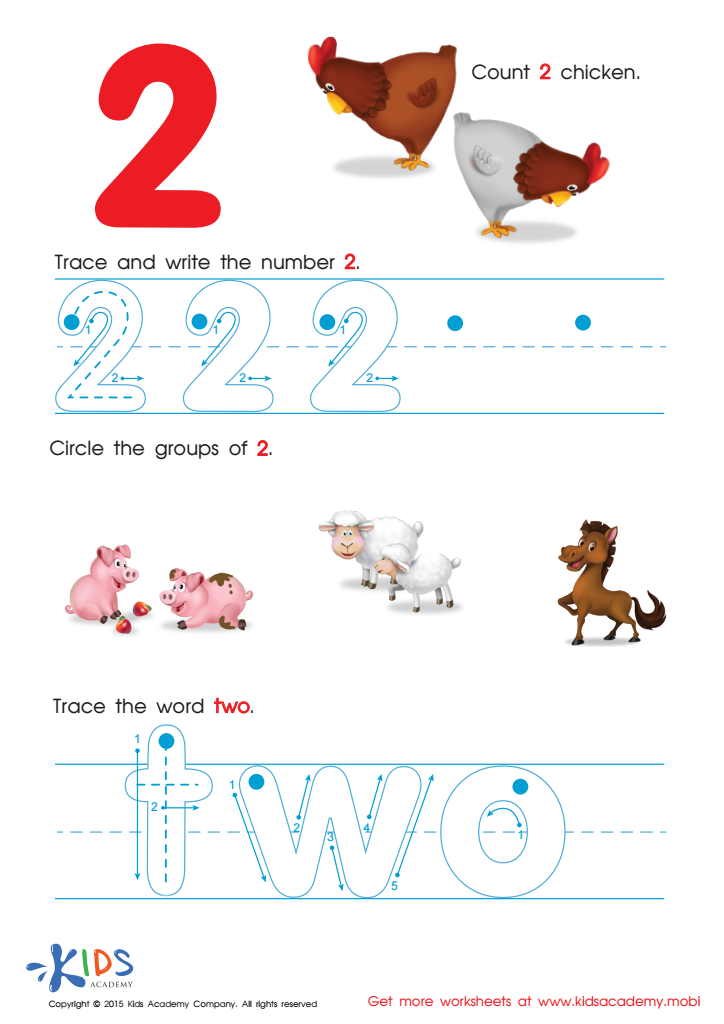

Learn to Write the Number 2 Worksheet
Fine motor skills are crucially important for children aged 6-9 as they underpin many foundational activities and learning processes fundamental to their overall development. These intricate skills involve the coordination of small muscles in the hands and fingers, enabling children to perform precise movements essential for various tasks.
One of the paramount activities honed by fine motor skill development is tracing numbers. Practicing number tracing enhances hand-eye coordination, dexterity, and control. Improved fine motor skills facilitate the ability to write legibly and clearly, affecting a child's academic performance, particularly in subjects requiring written work.
Moreover, reliable fine motor skills foster independence in daily tasks, such as buttoning clothes, tying shoelaces, and maneuvering utensils. This independence boosts self-esteem and confidence, both vital for socio-emotional growth.
Integrating tracing numbers into a child’s routine also instills an early appreciation for numeracy. This concrete engagement with numbers can improve counting abilities, number recognition, and basic arithmetic skills, laying a solid foundation for future mathematical learning.
Teachers and parents should thus prioritize fine motor skill activities, recognizing their comprehensive role in academic achievement, practical daily functioning, and psychological well-being. By supporting the development of these skills, adults help nurture competent, self-reliant, and confident children ready to embrace and excel in various life facets.
 Assign to My Students
Assign to My Students
